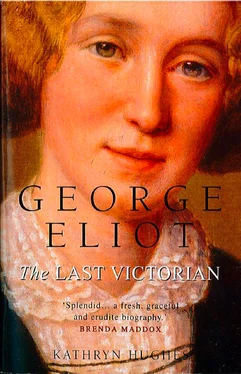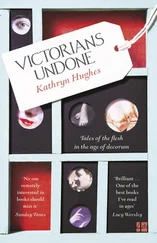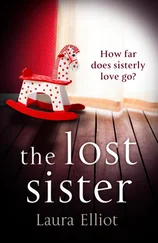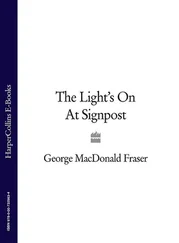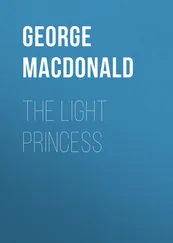A mix of motives is more likely. Running a working farmhouse was one of the few opportunities for a middle-class woman to exercise her energy and organisational skills, and Mary Ann certainly enjoyed being ‘an important personage at home’. 26 When the aunts came to dinner they could not fail to have noticed the gleaming tiles, polished furniture and well-stocked cupboards. The awkward, bookish little girl whom none of them had really cared for turned out to be a Pearson after all.
Keeping house for her father was also a way for Mary Ann to bind him closer to her. With her mother and elder sister out of the way, she was finally able to occupy the position of wife to Robert Evans. Over sixty and in indifferent health, Evans was devolving more and more responsibility for the estate business on to Isaac. In time-honoured tradition, he expected his youngest daughter to be the comforter of his declining years, filling his evenings with companionship, reading and music, before nursing him to his grave. It was a dull, heavy burden, but one which allowed Mary Ann to monopolise the member of her family who, she maintained on the eve of his death a decade later, was ‘the one deep strong love I have ever known’. 27
But it would be wrong to imagine something gloomy and gothic for Mary Ann Evans. Chilvers Coton was not Haworth; Robert Evans was not Patrick Brontë; and the girl herself was certainly not running mad over the moors. Griff was a working farmhouse, Robert Evans was still active and Isaac had a sociable, busy life. Mary Ann found herself playing hostess to a steady stream of visitors. The Pearson aunts and her married sisters all lived near enough to make frequent appearances at Griff. Then there were the Derbyshire Evanses, Samuel and his wife Elizabeth, who visited in early 1839. Mary Ann’s former schoolteachers, Miss Lewis and the Misses Franklin, came to stay several times. Old family friends put up at Griff, sometimes for days at a stretch.
Nor was she entirely confined to home. In November 1839 she stayed with her old school friend Jessie Barclay in London, making her first train journey to get there. The following year her father took her to visit his brothers’ families in Derbyshire and Staffordshire, making a detour on the way home to sightsee in Lincoln. Still, long-distance travel was neither easy nor cheap and the mail remained the chief way in which middle-class girls living at home continued their school friendships. Indeed, Hannah More, whose pious books Mary Ann much admired, referred to these post-school, pre-marriage years as the ‘epistolary period of life’. Many of Mary Ann’s letters from these years have not survived, but luckily forty-five remain, the majority written to Maria Lewis and Martha Jackson, an old classmate.
Evangelicalism, with its roots in the Puritan doctrines of the seventeenth century, had always placed the well-tended home at the heart of Christian life. Becoming mistress of Griff gave Mary Ann a larger sphere for her religious activities than she had hitherto known. Making jam and churning butter were not simply routine domestic tasks, but crucial ways of worshipping God. Determined to give up all worldly pleasures since ‘I find, as Dr. Johnson said respecting his wine, total abstinence much easier than moderation’, 28 she was in the powerful position of being able to make sure that everyone else at Griff did too – or else endure her smouldering disapproval. Every Michaelmas she sulked at having to organise a harvest festival supper. The pagan overtones of the feasting and drunkenness made the event ‘nauseating’ to her. Equally unpleasant was having to give up a day to the ‘disagreeable bustle’ of preparing for Isaac’s twenty-third birthday, on 19 May 1839, which was to be marked by a crow-shooting party. 29 The one saving grace was that since the birthday itself fell on the Sabbath, the celebrations were held over until the next day. By the time she came to write Adam Bede twenty years later, Eliot’s mature vision had transformed both the harvest supper and the coming-of-age party into occasions which celebrated the cohesion of village ties and the enduring nature of community life. At this point, though, they seemed witless and wanton.
That same crucial shift in perception is apparent in another incident which occurred around now. In early 1839 Mary Ann’s Methodist aunt and uncle were visiting from Derbyshire. Elizabeth Evans was a devout Methodist and a one-time preacher. Her vocation and a few details about her career notoriously formed the basis of Eliot’s portrayal of Dinah in Adam Bede . A genuinely good woman, Elizabeth Evans radiated the kind of generous fellow feeling which was anathema to her sour-minded niece. During the course of the visit Mrs Evans spoke joyfully about a minister she knew who had recently died. Undeterred by the fact that he was a drinker – a quality not likely to endear him to the abstinent Evangelical and dissenting conscience – she spoke enthusiastically about the man’s good qualities and concluded that he was now surely in heaven. ‘This was at the time an offence to my stern, ascetic hard views,’ explained the middle-aged Mary Ann, ‘how beautiful it is to me now!’ 30
Despite disapproving of her aunt’s reluctance to condemn, Mary Ann seized upon Elizabeth Evans as the one person within the extended family network with whom she could share the daily experience of her faith. Sadly, most of this experience was a kind of torture. In a letter written just after the 1839 visit, Mary Ann pours out her despair at her failure to reach God. Even at this point, two and a half years before she gave up going to church, she was battling with the realisation that her gloomy and self-denying faith had little to do with the divine and a great deal to do with her own internal dramas.
Instead of putting my light under a bushel, I am in danger of ostentatiously displaying a false one. You have much too high an opinion my dear Aunt, of my spiritual condition and of my personal and circumstantial advantages … I feel that my besetting sin is the one of all others most destroying, as it is the fruitful parent of them all, Ambition, a desire insatiable for the esteem of my fellow creatures. This seems the centre whence all my actions proceed. 31
Certainly it was ambition rather than fellow feeling which powered Mary Ann’s drive to become one of the most important figures in the parish. During these years she started a clothing club, organised bazaars, ran a Sunday School and visited the local workhouse, Coton College. ‘We shall never have another Mary Ann Evans’ was the ambiguous lament of those on the receiving end of her charity when she left for Coventry in 1841. 32 Spiritual and social yearnings dovetailed nicely when this pious busyness brought Mary Ann to the attention of Mrs Newdegate (who used the older spelling of the family name), the new mistress of Arbury Hall. Old Francis Parker-Newdigate had died in 1835 and the inheritance had passed to his cousin’s wife, Maria Newdegate, and her son Charles. While Francis Parker-Newdigate had been indifferent to the welfare of his tenants, his successor was irritatingly involved. Devoutly Evangelical, Mrs Newdegate insisted that all the farmers should attend church at least once on Sunday. This new regime at Arbury Hall exactly suited Mary Ann, who soon became a pet of her father’s new employer.
At the end of 1839 Mary Ann decided to start work on a chart laying out the history of the Church from the birth of Christ to the Reformation. If all went well it would be published and some of the profits would go towards building a new church at Attleborough. To help her with the vast research, she reported proudly to Maria Lewis that Mrs Newdegate ‘permits me to visit her library when I please in search of any books that may assist me’. 33
Читать дальше
